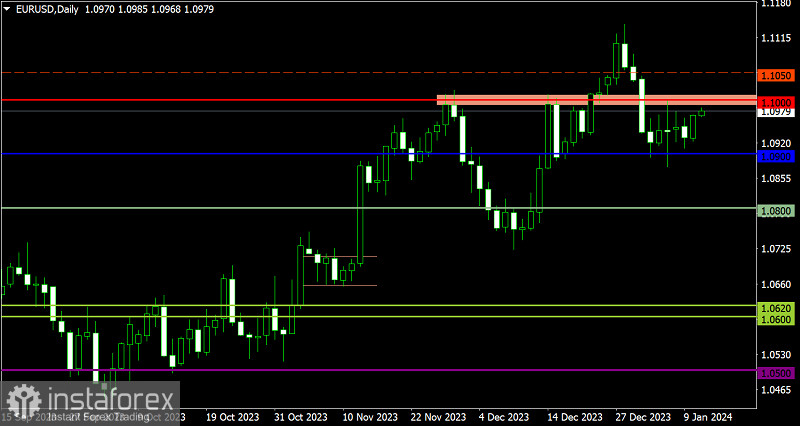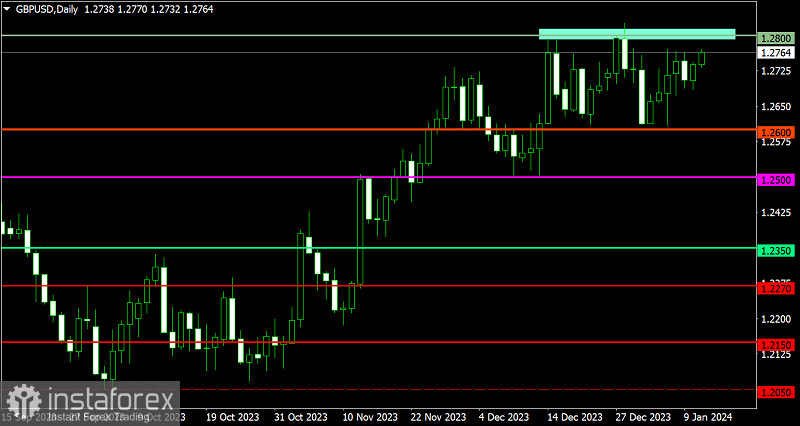US inflation may not just remain at the current level but accelerate from 3.1% to 3.2%. This means that the Fed will start lowering interest rates later than previously anticipated, most likely around summer. In addition, the ECB may be the first among key central banks to start easing monetary policy.
Ideally, all this should contribute to the strengthening of dollar, but it lost its position instead. This may be because of anticipation over significant events like the release of US inflation data. By and large, even if inflation remains unchanged, the Fed may delay lowering interest rates, which could lead to a rise in dollar.

Euro rose and managed to reach the level of 1.1000 despite relatively low activity. In this situation, stagnation may lead to the accumulation of trading forces, which will become a catalyst for speculative interest.

GBP/USD also shows an upward trend, almost recovering from the recent decline. The level of 1.2800 still stands as resistance, around which a reduction in the volume of long positions may occur.
 English
English 
 Русский
Русский Bahasa Indonesia
Bahasa Indonesia Bahasa Malay
Bahasa Malay ไทย
ไทย Español
Español Deutsch
Deutsch Български
Български Français
Français Tiếng Việt
Tiếng Việt 中文
中文 বাংলা
বাংলা हिन्दी
हिन्दी Čeština
Čeština Українська
Українська Română
Română

